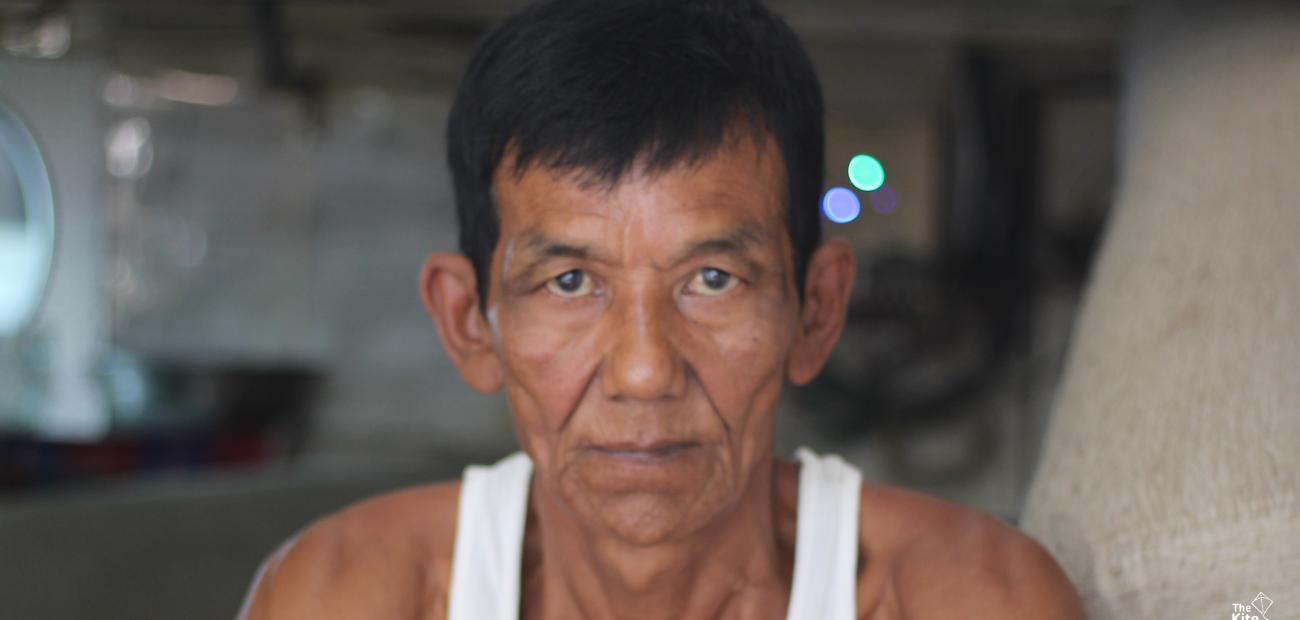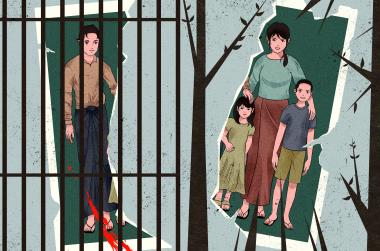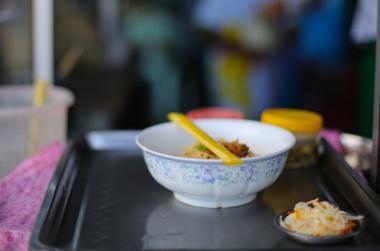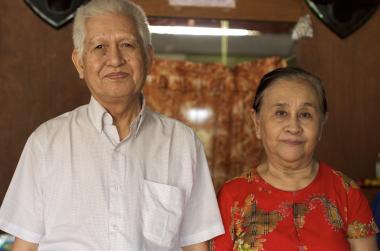When we interviewed him late last year Sein Maung's home was a dark, cramped space under the staircase of a high rise building in central Yangon. A security guard, caretaker and maintenance man all rolled into one, his days were filled with giving directions to guests, running errands and repairing the building’s lift, whose temperamental engine broke down weekly.
During the snatched moment when he had no work to do, he would rest his bony, weatherbeaten frame on a tattered bamboo mat and watch the world go by from under the staircase.
In the last decade, as Yangon embarked on a construction spree, janitors like Sein Maung have become permanent fixtures at densely-packed buildings across the city. Yet they also live a transient life, moving from job to job and town to town.
“I work as a janitor. This is where I live, eat and sleep. I have a mosquito net, a pillow, a blanket, and a bag with my clothes. I have no other possessions.
“I’ve been doing this job for a year and eight months now. Normally for a 12-hour shift from 7am to 7pm, you get 60,000 kyats (a month). I do a 24-hour shift at this building so I get 120,000 kyats ($100) a month. I learnt how to repair some motors and machines when I was in the army so I do that here too.
“I shower when I’m washing the water tank on the roof, so it’s not every day that I get to wash. At other times, I can use the facilities at the train station.
“It’s tiring. I’m thinking of leaving this job. If something goes wrong, it’s on my head. The lift breaking down shouldn’t have anything to do with me. We should call the professionals. But no. Sometimes (the people) would swear at me, using vulgar terms insulting my parents.”
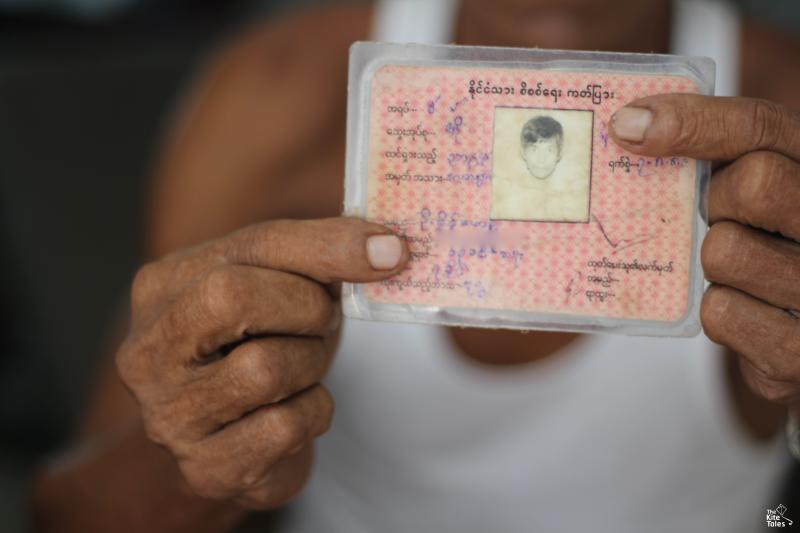
“I’m 48 years old. I have no front teeth left so that’s why I look older.”
“I’m originally from Sittwe but I left when I was 15. My mother died in childbirth. My father passed away when I was 10 from dengue. I never married either so have no family.
“I was a solider for eight years, in a unit that would supply the frontline troops with food. There was a lot of hardship.
“Then I was a farmer for 18 years but it was exhausting and I’m getting old so I decided to move to Yangon.
“There’s only one thing of value that I own - my identity card. It is the most valuable thing to me. You can’t do without it if you want to travel or work.
“If only I had a family, I wouldn't be in this position. Every time I go to the pagoda, I always pray for a family in my next lives.”
*Sein Maung spoke to The Kite Tales in November 2015. A few months later he left his job in the Yangon apartment block. He left no forwarding contact details.*
A note on identity cards in Myanmar. There are several tiers of national identity card in Myanmar, due to tangled, bureaucratic citizenship rules that prioritise some groups and ethnicities, give semi-official status to others and leave some completely without documentation. You need the cards to travel and to get most forms of work. According to the 2014 census more than 11 million people, or 27% of the people surveyed, had no identity documents. The proportion of people without documentation rises in ethnic minority areas, with some 40% of people in Kayin State listed as without any ID.

